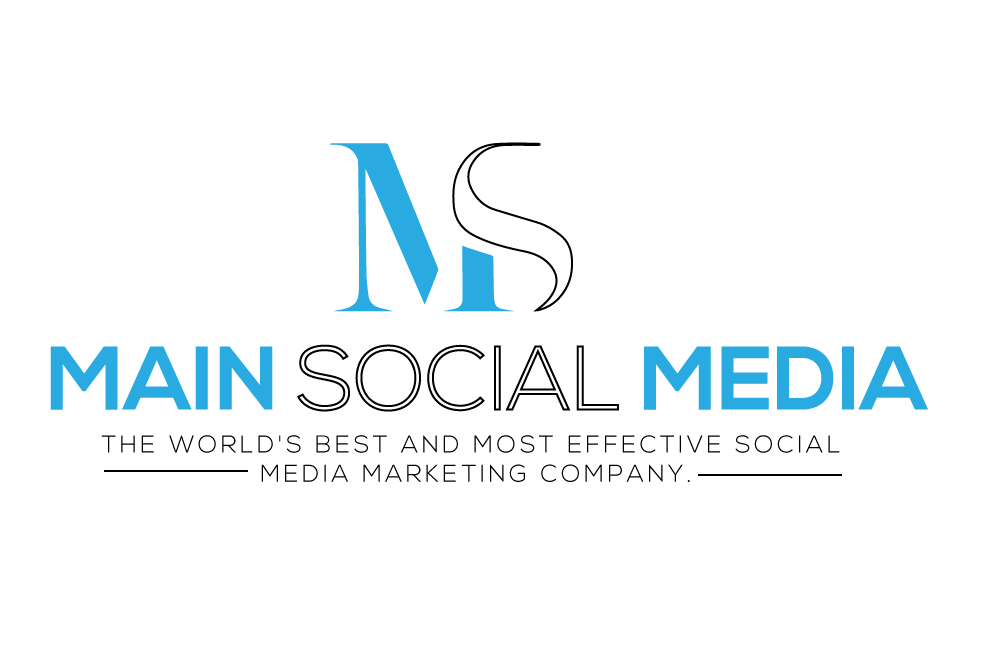
Search Engine Optimization vs. Social Media Marketing
Before getting deep into the differences between search engine optimization and social media marketing, it is important to understand the two terms first.
So, what is search engine optimization?
Search engine optimization or simply SEO involves updating your website to appear higher on search engine results pages (SERP) which translates to more visitors. More site visitors mean more chances to get more clients. Typically, the goal is to rank on the top page of Google results for search terms that are important to your target audience. It’s a subtle method on how to sell online.
On the other hand, social media marketing is a type of internet marketing that makes use of social media apps as tools for social media marketing services. These social media platforms allow brands to engage with their target audience to create a brand, increase sales, drive traffic to a website, and get more clients. Social media specialists have a good grasp of how to sell online using various social networking platforms.
Why People Confuse Them
Many people, particularly those who are not very familiar with the two terms, think that social media marketing and search engine optimization are the same.
Both are important channels for social media marketing specialists and providers of search engine optimization services, and they are both approaches to how to sell online and get more clients. These similarities are the cause of the confusion. However, the similarities end there.
Search engine optimization and social media marketing are worlds apart. Social media specialists and providers of search engine optimization services, for one, have completely different jobs.
Search Engine Optimization vs. Social Media Marketing: Breakdown of Differences
Now, let us examine the opposing features of social media marketing and search engine optimization. This way, you can answer for yourself the question of which of the two is better, determine the type of content to promote in which channel, how to allocate your time, and what to expect.
Psychology of the Audience
Search engine optimization and social media marketing have contrasting frames of mind, context, and intent. The reasons individuals use a search engine and open a social networking app are opposed. This is a simplistic but accurate way of looking at it.
Search engine users are preoccupied. They have particular needs, of which they are aware. They input what they need into a search field with the intent of getting answers or help.
On the other hand, social media users are “bored.” They have the time but have no defined goals. They tap, rather than type. They don’t browse on Google, and they don’t go to social media armed with a definite plan. Thus, social media specialists must establish a good match between the topics and the channels to promote them.
4 out of 10 young people won’t use Search or Google Maps when looking for a nice restaurant. Instead, they use Instagram or Tiktok. But when looking for facts and solutions, social media isn’t as reliable as Google.
SEO and SMM have wildly clashing topics
By considering user psychology, you will know right away why specific headlines, topics, and content perform better in search, while other subjects and headlines fare better on social media.
Content on social networking sites that trigger emotions, particularly anxiety, rage, and awe, do well. Trending topics are typically a hit on social media and strong opinion best describes social media content.
On the other hand, research-based content, such as comprehensive how-to instructional blogs and articles that address frequently asked topics, generally performs well on search engine optimization. Evergreen content that does not get outdated quickly is typically ideal for SEO.
Contrasting formats of SEO and SMM
Content marketing formats are the types of media in which the content is published - whether it’s a small tweet or a printed book, a captivating video or a good read article, or a podcast or a live event.
Here’s a quick list of popular formats.
- Text formats: blog articles, guides, ebooks
- Visual formats: videos, diagrams, memes
- Audio formats: podcasts
- Live formats: events, webinars
- Some formats have natural advantages in
some channels, search and social.
Long-form text for search engine optimization
Detailed articles score highest in search results, at least in conventional organic rankings. A typical high-ranking article is around 1000-1500 words long. Detail and relevance are important aspects of SEO. And because Wikipedia articles are thorough, the site is on Google’s good side.
Video for social media marketing
In fast-paced social feeds, video grabs attention. It's no wonder that Instagram Stories are so popular, while Facebook is emphasizing Reels, and Tiktok is continuing its steady rise. Short-form video is the web's fastest-growing medium.
Google understands the power of attractive graphics, and search results are becoming increasingly graphic. YouTube videos are surfacing in search results, in addition to the conventional organic rankings.
SEO vs. Social Media on Paid Targeting
Perhaps nothing highlights the search engine optimization vs. social media marketing contrast more perfectly than paid advertising.
In social media marketing, you target people and try to based on their activity and demographics. In search engine optimization, you target people depending on what they type into the search field.
Pay-per-Click (PPC)/Paid Search Engine Optimization
You know exactly what your prospects are thinking, but you have no idea who they are. For example, you’re offering mold remediation service. People will look for the service if they need it, and time is of the essence. The problems are specific to a particular demographic.
Paid Social Media Marketing
In social media marketing, you have no idea what these people are thinking, but you are aware of who they are, and you know how to sell. You’re selling cool sunglasses, for instance. People didn’t know they needed the product until you showed them. And now, they think they need to have sunglasses.
The examples above were given only to highlight the differences between search engine optimization and social media marketing. Paid targeting can work for various products, audiences, and topics.
SEO vs. SMM Influencers
Any content is open to collaboration. You can invite a resource person to appear in your next video or provide a quote for your next post. Use one of the naturally collaborative formats, such as interviews and roundups.
Note that collaborations with different influencers offer different benefits in different channels.
Subject matter experts for search engine optimization
When you want to create the best content on the internet for an evergreen topic, you want quotes from subject matter experts that give insights and depth. It makes no difference if they have a large number of followers on social media. Examples include research partners, journalists, and authors.
Social influencers for social media marketing
When you want to optimize reach and engagement, you want to work with people who have significant and active followings as this is a good way how to sell. It's great if they can supply specifics and insights, but their capacity to magnify is crucial. Strong/contrary viewpoints and media personalities are examples.
Of course, some potential collaborators are a hybrid of the two, combining flair and substance to produce insightful content with broad social impact.
Search Engine Optimization vs. Social Media Marketing: Upper Limits
What are the benefits, of granting everything falls into place? How much success is achievable? Again, social media marketing and search engine optimization provide opposed prospects, although both allow you to get more clients, and are good ways how to sell.
Topical maxima in search traffic
There is a limit to how much traffic a page can receive from search engines. The volume will never exceed the number of searches for that topic daily. The entire demand for the topic is the greatest amount of traffic from search engines that the page will receive.
Virality on social media can be breathtaking.
The volume of traffic a page can receive from social media is nearly limitless. Specific content may be shared by a large number of people. If you've ever seen Analytics for "viral" content, you know how far and fast things can spread
Search Engine Optimization vs. Social Media Marketing in Terms of Speed and Longevity
Search engine optimization and social media specialists spend widely varying efforts. And the longevity of the results varies. The element of time for both cost and benefit is conflicting.
Search engine optimization: Slow but tenacious
It takes time to establish a domain's authority and the relevancy of a page. It can take 10+ hours to write search-optimized pages. If there isn't much competition for the key phrase, it could appear high in search results within a few days. When the competition is severe, it may take years of content updates and link-building to succeed. However, once a page ranks, it may have long-term visibility, resulting in a continual, passive source of visitors.
Social media marketing: faster, but fleeting
Even though it takes effort to build a following, most social media postings don't need hours to write. They immediately go live. Visibility and engagement occur quickly. However, the post is swiftly lost in the frenzied social streams. Social workers are aware that this work demands constant, continuing effort.
Search Engine Optimization vs. Social Media Marketing Conversions
When the intent is varied, so are the conversion rates. Those who arrived by keyboard are more likely to act than visitors who arrived via glass.
Conversion rates from search engine optimization services
Users are on the lookout for something. They simply looked for it. As a result, search visitors are more likely to be ready to buy, but less likely to share and participate. These visitors arrive with a specific goal, need, or question. They are determined.
Conversion rates from social media marketing services
Users were just looking about when they came across your offer. They have no clear intention. However, if you capture their attention, they may visit you. They may also share information and raise awareness, influencing other potential customers.
Search Engine Optimization vs. Social Media Marketing Measurement
Two sets of analytics are available for the two channels in addition to conversion rates. Because most search traffic comes from a single domain, search analytics are more accurate. The social media traffic is more difficult to quantify because it originates from a diverse set of websites and apps.
Search engine optimization metrics
Google Search Console displays sites and queries, however, it does not track specific page rankings. The closest you'll get is "Average Position." To track ranks for certain terms, you'll need to pay for a paid tool. You can, however, use Analytics to monitor changes in search traffic to your pages over time.
Social media marketing metrics
Shares, comments, and likes are all prominently displayed. However, to effectively track social media traffic on your website, you must utilize a URL builder to insert campaign tracking codes. You can track website engagement once the campaign tracking codes are in place.
For search engine optimization and social media marketing services, contact us at Main Social Media.
You might also like





